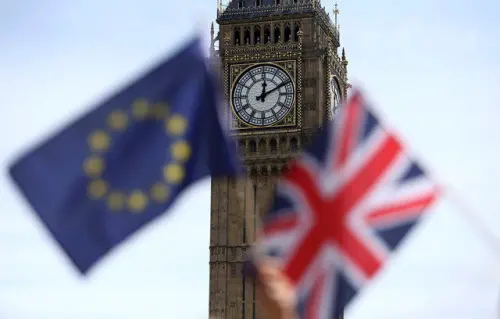The annual UN climate talks started Monday in Warsaw to pave the way for a new global climate deal setting post-2020 targets on emission cuts, although no major breakthrough were expected.
Thousands of representatives from nearly 200 nations gathered in Poland's national stadium for the two-week negotiations, formally known as the 19th session of the Conference of the Parties to the United Nations Framework Convention on Climate Change (UNFCCC), or COP19.URGENT NEED FOR COLLECTIVE ACTION
Polish Environment Minister Marcin Korolec, who was elected as COP19 president at the opening session, pledged that utmost effort would be made to reach a global consensus, citing transparency and an inclusive process as his top priorities.
"One country or even a group cannot make a difference... But there is always something each party can bring to the table," Korolec said, calling for collective action from all parties.
UNFCCC Executive Secretary Christiana Figueres warned next generations would face a "monumental uphill struggle" against climate change.
"There are no two sides, but the whole of humanity. There are no winners and losers, we are either win or lose in the future we make for ourselves," Figueres said, urging for faster and stronger global moves for a sustainable future.
Figueres stressed that, at the Warsaw conference, finance must be clarified for low-carbon development, the mechanism that helps vulnerable populations to cope with effects of climate change must be launched, and an effective path to pre-2020 ambition must be delivered.NEW GLOBAL CLIMATE TREATY
It was agreed at the 2011 Durban climate conference to establish a new global climate treaty setting emission targets for all UNFCCC parties. It will replace the Kyoto Protocol, the first legally-binding document for developed nations whose second commitment period will end in 2020.
The outline of the new treaty will be discussed at the Warsaw conference, with a view to it being signed in 2015 in Paris and coming into effect in 2020. UN Secretary General Ban Ki-moon will organize a summit next September to ensure the 2015 deadline is met.
Both developed and developing countries have pledged to curb carbon emissions, but there are deep divisions over burden sharing. According to the UNFCCC's fundamental principle of "common but differentiated responsibilities," developed countries are mainly responsible for the current high levels of greenhouse gas emissions generated since the industrial era.
Global average temperatures have risen by 0.8 degrees Celsius since the industrial era, and most global warming is man-made, according to the United Nations.
Mainstream scientists believe global warming poses a mounting threat to health, economic growth, crops and water supplies. Typhoon Haiyan, which is feared to have killed up to 10,000 in the Philippines last week, has been frequently mentioned at the Warsaw talks as a "painful awakening" of the risks of extreme weather.
According to the latest report from the United Nations Environment Programme (UNEP), greenhouse gas emissions need to be drastically reduced by 2020 in order to meet the target of limiting global warming to 2 degrees Celsius compared to pre-industrialization levels.
The World Meteorological Organization said earlier this month that the total concentration of CO2, methane, nitrous oxide and other gasses rose to a new record in 2012.CHALLENGE FOR HOST COUNTRY
It remains unclear whether the coal-reliant host country can play a vital role in pushing forward global climate talks as Poland is in fact one of the world's most outspoken defenders of coal energy.
Polish government plans to preside over a high-level coal industry event on the sidelines of the ongoing climate talks to discuss the role of coal in the global economy.
The Polish authorities insist coal needs to be a key part of the climate debate, while coal companies normally keep a low profile during UN climate talks.
Coal accounts for nearly 90 percent of Poland's electricity generation for its 38 million people. Poland ranks fifth for carbon dioxide pollution in the European Union (EU), behind Germany, Britain, Italy and France, whose economies are far bigger.
While Poland used to block the EU from introducing stricter greenhouse gas emissions targets, it has started restructuring its energy mix to boost renewable energies, although coal will remain one of its principal energy sources in the near future.
Meanwhile, the first day of COP19 coincided with public marches in celebration of Poland's national independence day.
 简体中文
简体中文

